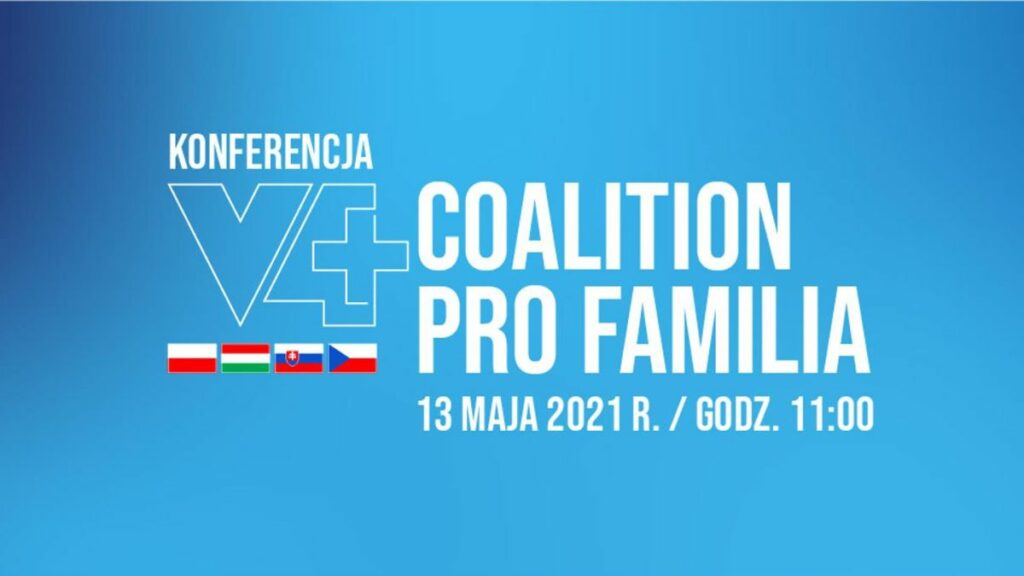In the European Union, rightly regarded as the most anti-family region on earth, an alliance of four Central European nations known as the Visegrád Group—Hungary, Poland, Slovakia, and the Czech Republic—has courageously launched the Coalition Pro Familia to protect and promote the family. “For us, family is the foundation,” declared Polish Prime Minister Mateusz Morawiecki as he hosted the launch on May 13, 2021. “Society without families would be like civilization without culture, or mathematics without numbers.”
The symbolism suggested by the name Visegrád, a Hungarian castle city where these four countries entered a political alliance in 1991, is particularly apropos as they now seek to build a legal and cultural fortress for the family. It is not the first time the family has been under assault in these former Iron Curtain states where, under the yoke of Soviet rule, the population became “acutely conscious of the threat communism posed to the family,” says Rod Dreher, “and what must be done to help the family endure in the face of a government and a social order bent on its destruction.”
That long totalitarian nightmare left these subjugated peoples with a keen appreciation of the indispensable role of family. It is hardly coincidence that no less than three times has our World Congress of Families—the planet’s largest and most influential gathering of pro-family policymakers, academics, and NGOs—been held in these countries, including the very first World Congress in Prague in 1997, not long after the fall of the Soviet Union. A decade later Warsaw hosted a World Congress, and another decade later, in 2017, a World Congress was held in Budapest at the invitation of Hungarian Prime Minister Viktor Orbán, who personally spoke at the event.
The thousands in attendance were apprised unequivocally of Hungary’s worldview: “The family is the basic, natural, living unit of the nation, upon which every community and the nation itself is founded. The wellbeing of the family is the key to the nation’s future quality of life. The family is the national, European, and global common ground which we have to protect with utmost care.”
Hungary is providing that protection, beginning with its constitutional commitment: “We hold that the family and the nation constitute the principal framework of our coexistence, and that our fundamental cohesive values are fidelity, faith, and love…. Hungary shall protect the institution of marriage as the union of a man and a woman established by voluntary decision, and the family as the basis of the nation’s survival.”
Nor is this a mere a parchment guarantee. Just days before the launch of the Coalition Pro Familia, the dangerous and deceptively worded phrase “gender equality” was removed from the EU social summit declaration at the insistence of Hungary and Poland. This rejection of what Prime Minister Orbán correctly termed an “ideologically motivated expression” did not mean, however, he was against fundamental fairness. “The fact is,” he emphasized, “that men and women should be treated equally.”
With the launch soon thereafter of the Coalition Pro Familia, Hungary and Poland expanded their collective pro-family voice by including Slovakia and the Czech Republic. This strategic move came less than four months after the end of the Trump administration, which in October 2020 had led an unprecedented 32-nation coalition—cosponsored by Hungary and a few others—in the creation of the Geneva Consensus Declaration to protect life, family, and national sovereignty. With the Biden administration’s refusal to honor that declaration, Hungary is again pro-actively expanding international protection for the family.
Hungary’s example stands like a lighthouse, not only for Europe but for the world. In the closing moments of the World Congress of Families in Budapest, IOF President Brian Brown invited attendees from around the world to take action wherever they lived. His invitation still stands: “When you go back to your countries, when you go back to your communities, take action. Realize the possibilities. Don’t think about what can’t be done; think about what can be done. Start something new. We can go and make the world a better place. Make sure you are part of that.”
